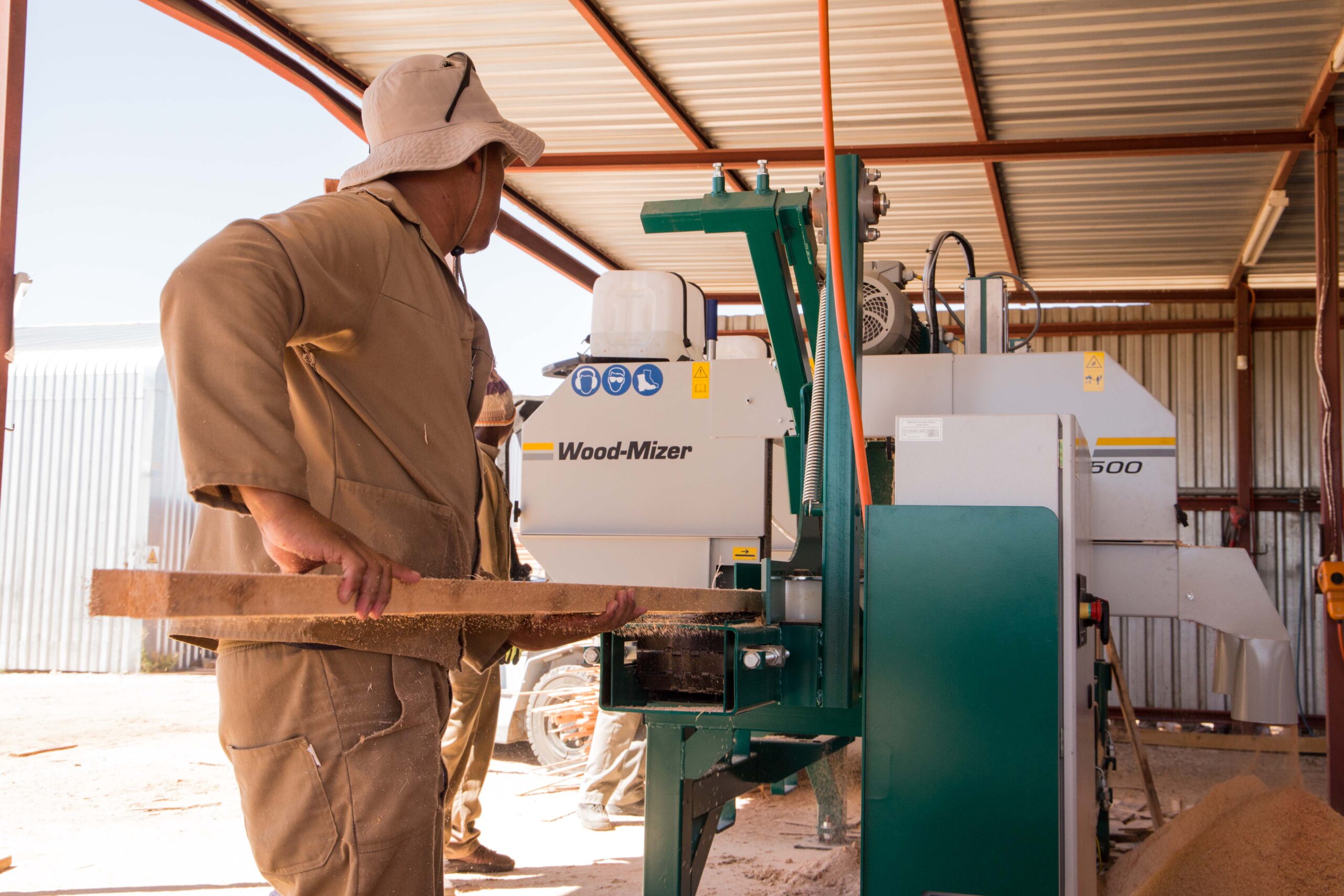The installation of a Wood-Mizer HR500 double-head resaw at a pallet manufacturing business in South Africa’s Northern Cape province, delivers a number of benefits for the company.
South Africa’s Northern Cape province is the driest area in the country with an average rainfall of only 202 mm.
The dry conditions are not ideal for growing trees with hardly any marketable timber available in the area except for firewood.
The lack of timber and the high demand for timber packaging to ship produce from the area to end-users gave Zak Gerber, the owner of JJZ Gerber Houtwerke BK in Upington the idea to start a pallet manufacturing business.
A river runs through it
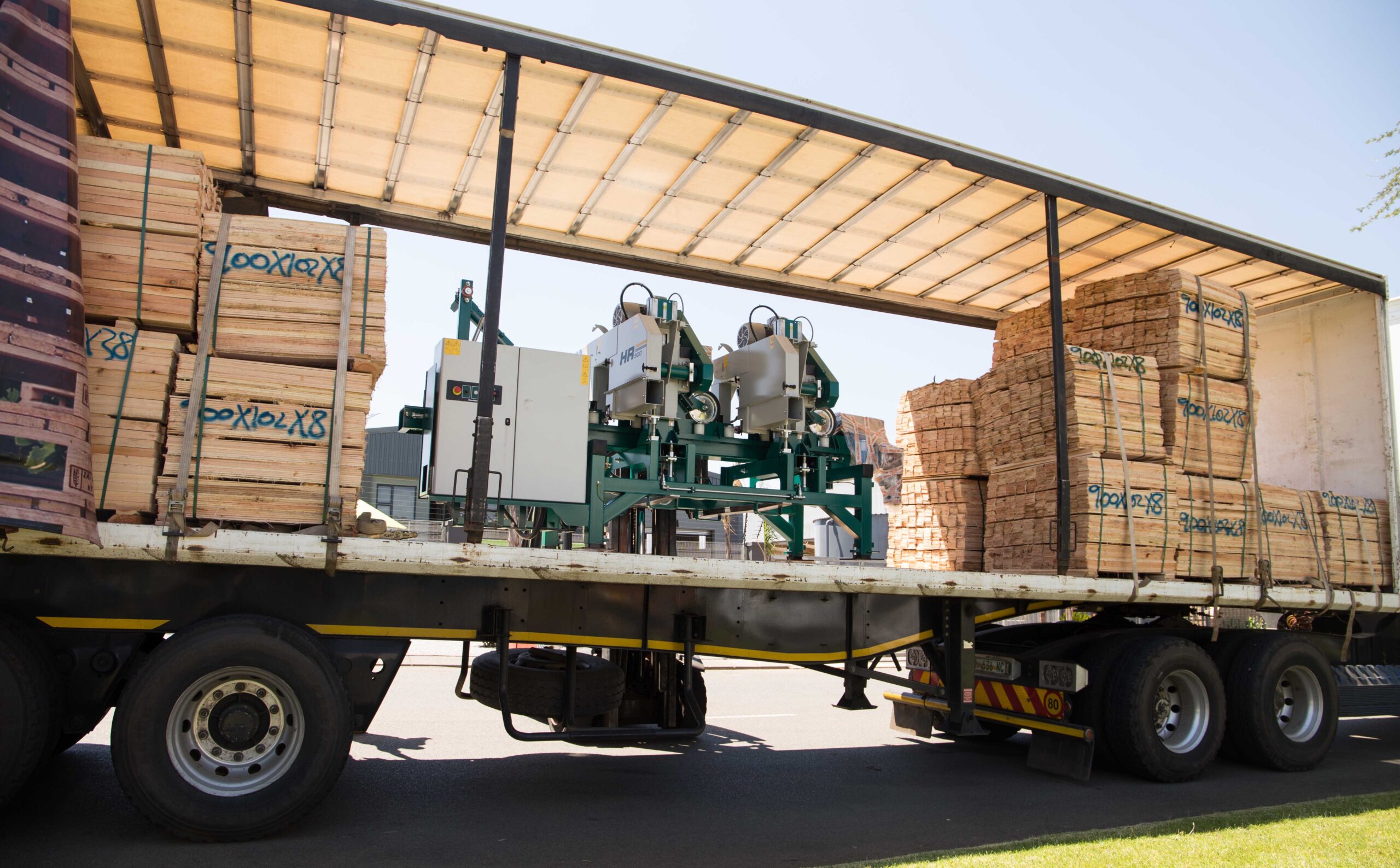
The HR500 on its way to Upington. The cargo includes 8 mm board that had to be bought from outside suppliers before the arrival of the HR500.
Upington is located on the banks of the Orange River, South Africa’s largest river.
It flows for nearly 2300 km’s from the interior, past Upington to the Atlantic Ocean on South Africa’s West Coast.
The river is the lifeblood of the area.
The town and farmers use the river’s water to sustain the town and produce desert wines, table grapes, dried fruits and animal feed for livestock farming.
The baking desert sun concentrates grapes into super sweet wines while the heat dries millions of tons of fruit into dried fruit products that are exported globally.
Farmers along the Orange River Valley depend on timber pallets, crates and wooden packaging to dry fruit, and transport their produce to market.
Zak Gerber is one of the many successful grape and raisin farmers that have farmed in the area over several generations.
While farming he saw the need for pallets and crating. His passion for making furniture also gave him a taste for manufacturing.
But to start a timber manufacturing business in an area with no timber would be tough – unless the timber scarcity could somehow be used as a springboard to success?
Using scarcity to start a business
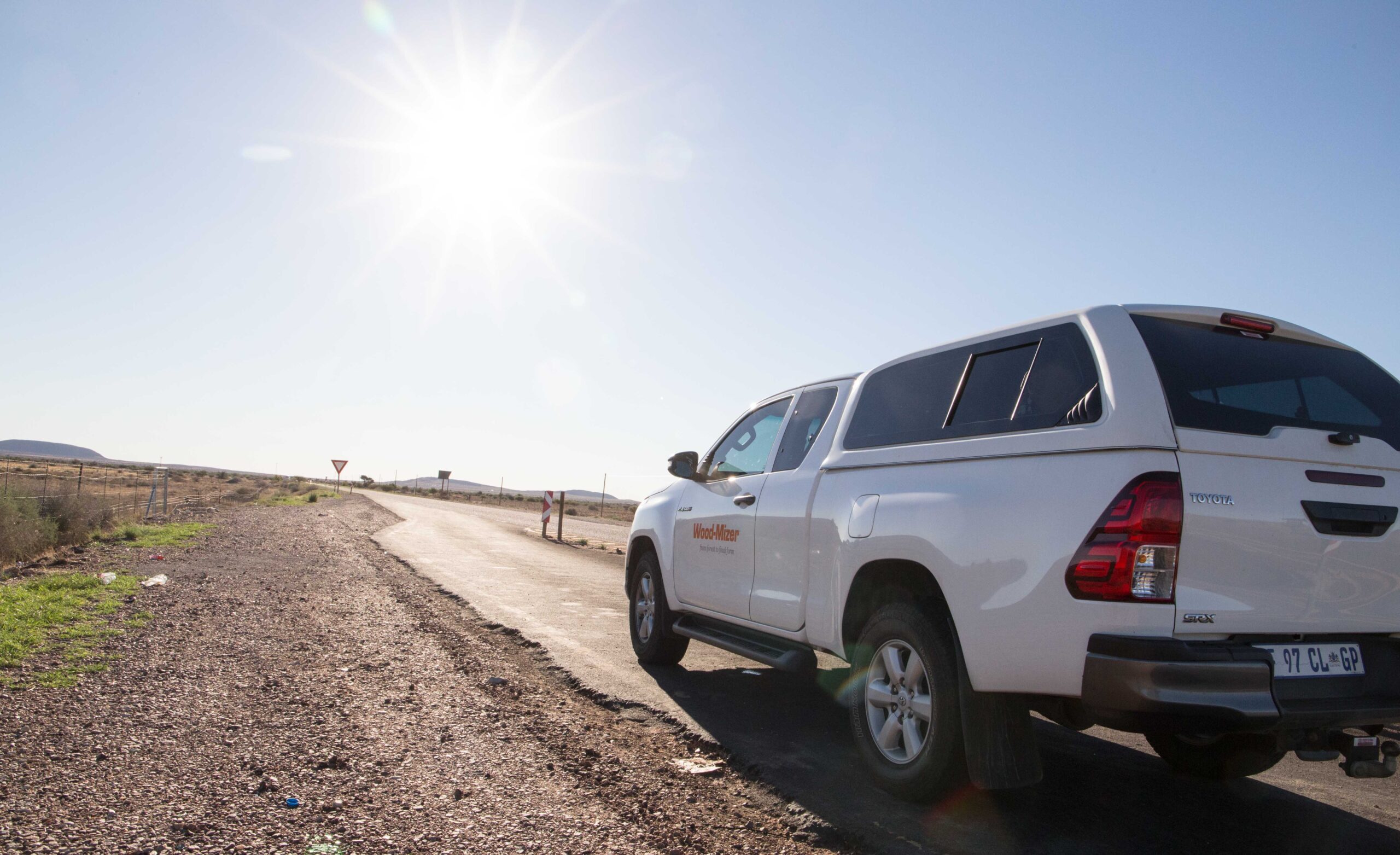
The harsh Northern Cape landscape and blistering sun with no marketable timber close by.
Before JJZ Gerber Houtwerke was started, pallets and crating came by road from suppliers several hundred kilometres away.
The transport costs and delays to get ready-made pallets to farmers ate into budgets and made planning difficult.
Zak Gerber rethought the process and decided to build pallets, crates and drying racks in Upington.
Slashed pallet prices and zero delays were some of the immediate benefits that resulted from this.
But the real masterstroke was how Zak used the Northern Cape’s lack of timber to defend his business.
Any competitor who wanted to copy his business model and match his successes, would first have to get raw timber to Upington cheaper and build pallets that bettered Zak’s prices and quality.
Efficiency
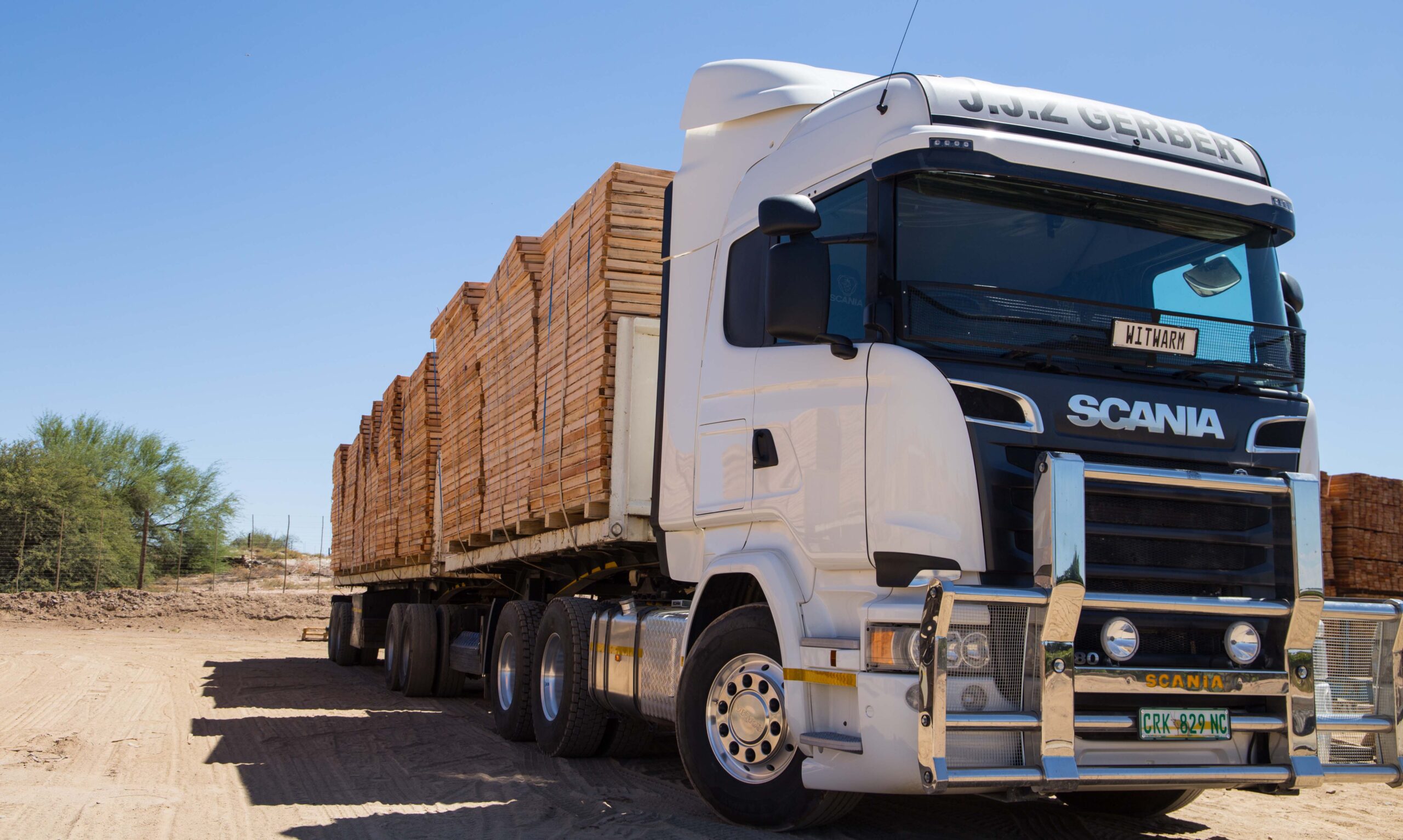
High quality, affordable drying racks that are manufactured in Upington on their way to dried fruit producers in the Orange River Valley.
Getting local manufacturing in place was the first step.
To get control of the fixed costs like transport and the price of timber was the next step.
Zak can control the transport costs with his own fleet of trucks.
To reduce the price of timber as much as possible, Zak uses a simple approach. Buy in bulk and process as much timber as possible locally.
Timber blocks are easier to transport, costs less than ready sawn material and can be cut into any size that manufacturing requires.
This wasn’t always possible while the factory grew.
A single head resaw made some custom cutting possible. But the 8 mm components used for drying racks still came from timber suppliers. The premium paid for these components was high and ate into Zak’s margins.
Wood-Mizer HR500 resaw
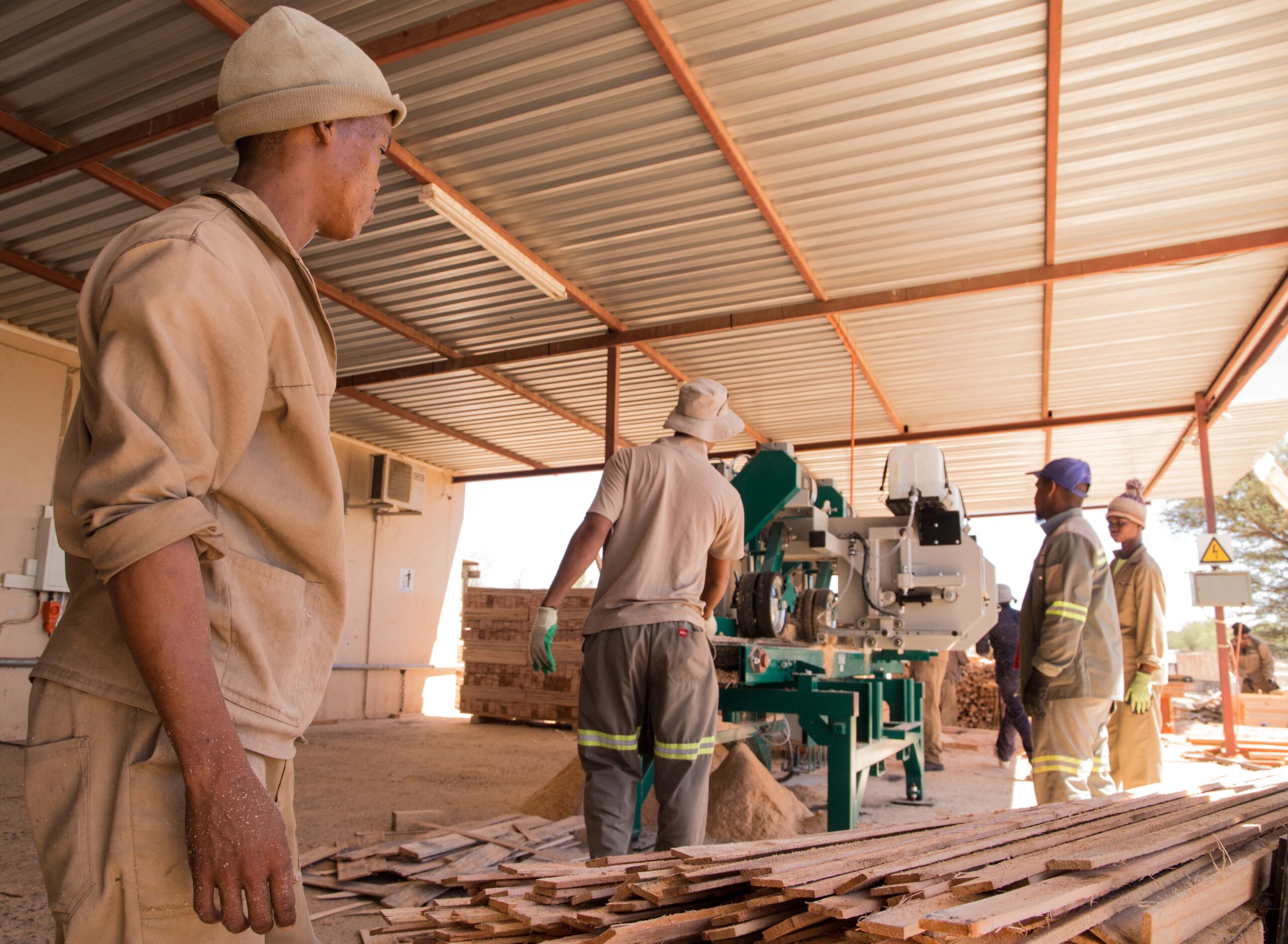
The same 8 mm board now being cut in Upington on the JJZ Gerber Houtwerke’s recently commissioned HR500 resaw.
JJZ Houtwerke’s new Wood-Mizer HR500 resaw has decreased the company’s timber costs and increased their production capacity significantly.
The HR500’s material processing capacity of 300 mm (wide) x 400 mm (high) allows them to seamlessly resaw the hardwood cants that arrive at the factory into several precisely resawn boards in one pass.
The HR500’s heavy frame, steel belt conveyor and hold down roller system makes it easy to cut hard wood with tension into accurately resawn boards.
The easy-to-use electric head up-down control unit ensures consistent sizing and increased output.
The HR500 is a modular machine, which made it easy for Zak to buy one frame and then fit one or two heads? He chose two heads and will later add a second frame to increase production even further.
The units are pre-wired to allow for easy installation and expansion to a maximum of six heads.
The HR500 comes standard with a blade lubrication kit, which together with the hydraulic blade tensioning are centrally located to increase productivity and ease of access.
Zak also invested in a Wood-Mizer BMS200 bandsaw blade sharpener and BMT250 blade setter to service the blades used on the HR500.

